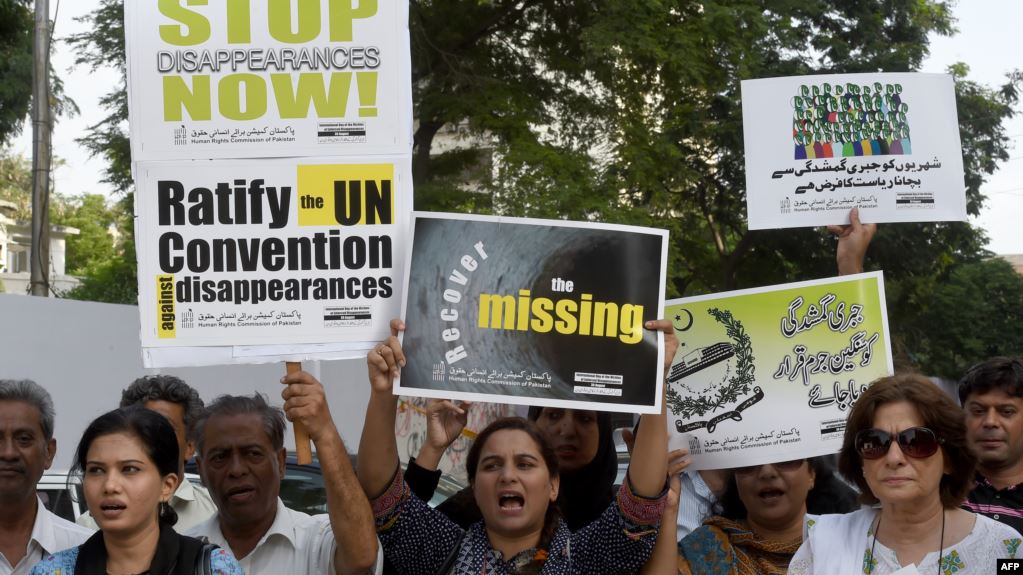According to an Amnesty International Report of March 2019, titled ‘Pakistan: Enduring Enforced Disappearances,’ “Enforced disappearances have long been a stain on Pakistan’s human rights record. Despite the pledges of successive governments to criminalize the practice, there has been slow movement on legislation while people continue to be forcibly disappeared with impunity.”

According to Pakistan’s Commission of Inquiry on Enforced Disappearances (COIED) there are 2178 cases unresolved to date. As per the Commission’s recent monthly report “48 cases disposed of in the month of January 2019, included 46 traced persons out of which 29 were returned home, 10 were traced to internment centers, five are in jails on terrorism charges and two were described as “dead bodies”.”
The United Nations Working Group on Enforced or Involuntary Disappearance “has more than 700 cases pending from Pakistan. The number of cases of victims of enforced disappearance recorded by victim groups are much higher. Victim groups and the civil society have serious concerns with regards to the effectiveness of Pakistan’s COIED, primarily that it is not using its powers to investigate and hold the perpetrators accountable and that it does not have civil society or the victim groups representation on its board.”
According to Amnesty “groups and individuals targeted in enforced disappearances in Pakistan include people from Sindhi, Baloch, Pashtun ethnicities, the Shia community, political activists, human rights defenders, members and supporters of religious and nationalist groups, suspected members of armed groups, and proscribed religious and political organizations in Pakistan. In some cases, persons are openly taken into custody by the police or intelligence agencies, and families trying to find out where they are held are denied information by the authorities. Some victims are eventually released or their whereabouts are disclosed to their families but they continue to be held in arbitrary detention including in internment camps. Those forcibly disappeared are also at risk of torture and death during captivity.”
On July 30th, the Human Rights Commission of Pakistan (HRCP) issued a statement protesting against the recent government notification “that civil society organizations such as Voice of Baloch Missing Persons now require a no-objection certificate (NOC) to hold missing persons camps. Restricting people’s right to protest peacefully in this manner is grossly unfair. Such requirements imply that the people who set up these camps can now be prosecuted merely for voicing their demand that missing friends and family members – as possible victims of enforced disappearance – be located. The restriction only compounds the injustice. We urge the government to remove this requirement and to focus on eliminating the problem of enforced disappearances rather than devising new methods to suppress dissent.”
![]()





